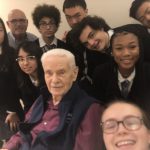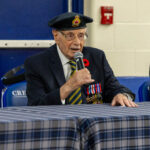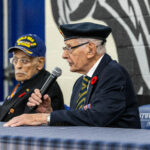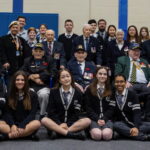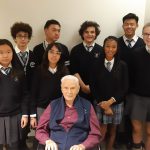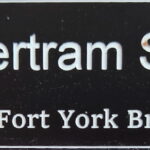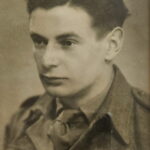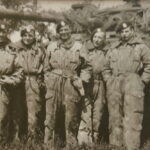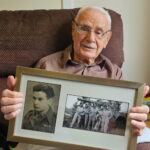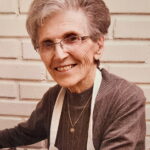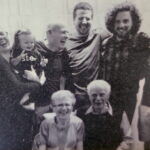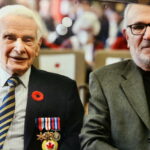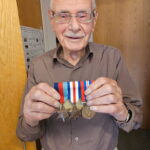Bert Shinwell was born in Glasgow, Scotland, on June 28, 1925. Bert grew up with two sisters and one brother; he was the third child in a Jewish family. The Great Depression took away his father’s job as a tailor, though his father did find work in the Glasgow Shipyards during the war – he also served in the Home Guard. Bert left school at the age of 14 and went to work to help support the family; many schools closed down because of the Blitz in any case. Bert’s older brother had enlisted in the RAF just before the war began, and Bert followed when he was old enough. Bert recalls that he “couldn’t wait to go” and that – as a Jew – he felt it was his war. He completed his basic training in Perth, Scotland, at which time he was sent on to tank training and assigned to the Staffordshire Yeomanry, an armoured regiment where Bert was part of a tank crew. A policy decision was made to even out experience among the various formations, and because of that the Staffordshire Yeomanry left the 8th Armoured Brigade and joined the 27th Armoured Brigade. Bert was still in training when D-day took place, though the brigade had taken part in the June 6 landings and took heavy casualties in the Normandy campaign. Bert thus went in as a replacement soldier, serving on an amphibious Sherman Duplex Drive tank. His time came a few weeks after D-day; Bert crossed the Channel and headed inland in Normandy, experiencing his initial combat within the first few days. He and his crew fought their way from Normandy all the way to Germany; as an amphibious unit they were heavily involved in the Battle of the Scheldt, pushing the Germans out of Belgium and then the Netherlands, mush to the delight of the cheering civilians who greeted them every step of the way. They also crossed the Rhine as part of Operation Plunder, pushing into Germany itself. On their way across the country, Bert and the crew came upon the infamous Bergen Belsen camp on April 15, 1945. The armoured units were among the first to arrive, and they discovered that there was little they could do for the prisoners – and that frustrated Bert. The day and the sights from that place made an impression on him, the most indelible of the war as he recalls. The fighting came to an end just a few weeks later, an anticlimactic event in Bert’s mind that was followed by time in the Army of Occupation. When the war ended, Bert came to Canada and met his wife, where the two of them built a life together in Toronto. We first visited Bert in the Sunnybrook Veterans’ Wing, where a group of Crestwood students interviewed him in January 2020. In May 2025 Bert came to Crestwood to commemorate the 80th anniversary of the liberation of the Netherlands, and in June 2025 Scott Masters and Zach Dunn visited Bert at Sunnybrook.
Videos
Click next video below to keep watching
